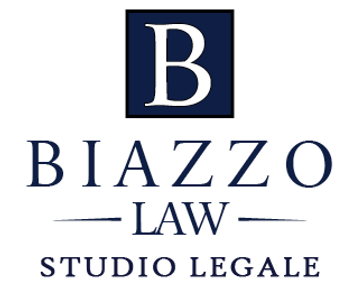October Massacre on Unconstitutional Executive Conduct at the Supreme Court
- corey7565
- Oct 29, 2025
- 3 min read

Two New Amicus Briefs Defending the Constitution’s Guardrails
Posted October 29, 2025 – by Corey Biazzo, Esq.
This October has turned into what might be called an “October Massacre on Unconstitutional Executive Conduct”—not in blood, but in principle. The U.S. Supreme Court’s docket this month is packed with cases that test whether the President can push past the Constitution’s limits in the name of policy.
In two of those cases, I filed amicus curiae (“friend of the court”) briefs urging the Court to reaffirm the balance our Founders designed: Congress writes the laws, the President enforces them, and the courts interpret them. When those lines blur, individual rights—and the very idea of limited government—begin to erode.
Below is a plain-English overview of the two cases and what’s at stake.
1. Birthright Citizenship and the Fourteenth Amendment
Cases: Trump v. Washington and Trump v. Barbara (Nos. 25-364, 25-365)Co-Amicus: Kevin Song
In January, the President issued Executive Order 14160, “Protecting the Meaning and Value of American Citizenship,” directing federal agencies to deny U.S. citizenship to certain children born on American soil if their parents were neither citizens nor lawful permanent residents.
Multiple courts blocked the order, finding it inconsistent with the Fourteenth Amendment’s Citizenship Clause, which guarantees that “All persons born or naturalized in the United States, and subject to the jurisdiction thereof, are citizens of the United States.”
What our brief argues
The Constitution—not the Executive—defines citizenship. The President cannot change constitutional meaning by decree. His role is to enforce the law, not rewrite it.
The Fourteenth Amendment’s text and history are clear. Since United States v. Wong Kim Ark (1898), the Supreme Court has recognized that children born here are citizens, except in rare cases like children of diplomats or occupying forces.
No new exceptions by executive order. Citizenship cannot depend on a parent’s immigration paperwork or visa status. The Amendment draws a territorial line, not a political one.
Why it matters to everyone
The case isn’t just about immigration—it’s about who gets to interpret the Constitution. If presidents can unilaterally redefine citizenship, the same logic could let them narrow any other right. Upholding the Fourteenth Amendment’s promise protects equality, stability, and the rule of law for all Americans.
2. Presidential Tariffs by Emergency Order
Cases: V.O.S. Selections v. United States and Learning Resources v. United States (Nos. 25-250, 24-1287)
In a separate case, the Court will decide whether a President can use emergency powers to impose sweeping “reciprocal tariffs” under Executive Order 14257. That order invoked statutes like the International Emergency Economic Powers Act (IEEPA) to raise duties on imports—essentially rewriting parts of the tariff schedule by executive action.
What my brief argues
Only Congress can levy taxes and duties. Article I of the Constitution vests the power to “lay and collect Taxes, Duties, Imposts, and Excises” in Congress alone. Tariffs are taxes, and taxing is lawmaking.
Emergency statutes are not blank checks. Laws like IEEPA were never meant to give presidents ongoing authority to remake trade policy or raise revenue. They address specific emergencies, not permanent power shifts.
Separation of powers is good for business and democracy. Predictable, deliberative lawmaking—by Congress—keeps markets stable and ensures accountability for major economic decisions.
Why it matters
Even if one favors strong trade measures, process matters. A nation of laws relies on each branch staying in its lane. When presidents claim unilateral control over taxation, they sidestep the people’s representatives—the very mechanism the Framers designed to prevent abuse.
The Common Thread: Constitutional Guardrails
Both briefs share a single message: our constitutional system works because no one branch can dominate the others.
Article I gives Congress the power to legislate and tax.
Article II charges the President with faithfully executing those laws.
Article III empowers courts to say what the law is.
Those lines aren’t partisan—they’re patriotic. Whether you lean left, right, or center, these guardrails protect you from concentrated power. The “October Massacre” at the Supreme Court is really a reaffirmation of something deeply American: that the rule of law applies equally to everyone, even presidents.
Filed Amicus Briefs:
Birthright Citizenship Cases (with Kevin Song) – Filed Oct. 29, 2025: https://www.supremecourt.gov/DocketPDF/25/25-364/381048/20251029164536026_Brief%20to%20File.pdf
Tariff Cases – Filed Oct. 8, 2025 https://www.supremecourt.gov/DocketPDF/24/24-1287/379179/20251008214716172_Biazzo%2010.08.25%20Amicus%20Brief%20to%20File.pdf
Both are publicly available through the Supreme Court’s docket and may be cited as amicus briefs by Corey Biazzo, Esq.
For questions, interviews, or a plain-language explainer for your organization, contact www.biazzolaw.com




Comments